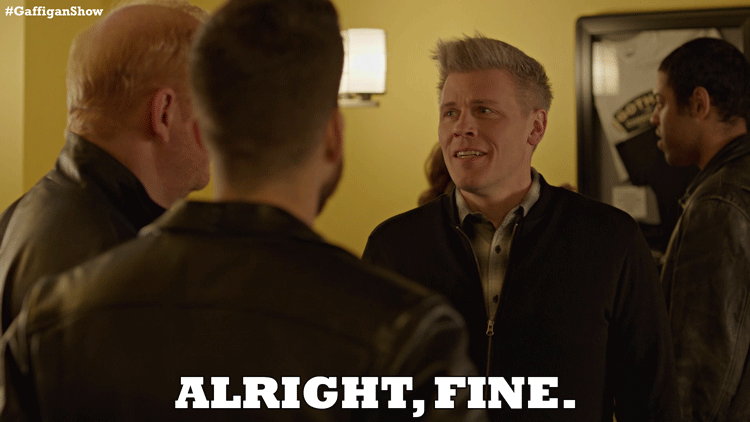What does the Bible say about dealing with mean people?

(EDITOR'S NOTE: When we refer to "mean people" in this article, we're not talking about abusive people. That's a whole other matter.)
Dealing with mean people is an inevitability—sad but true. Sin has hooked its tendrils into every human heart, and those sinful tendencies often end up hurting others. Romans 1:28-30 gives us a long list of unrighteous behavior, including malice, gossip, slander, insolence, heartlessness and ruthlessness. Whether it's a school bully, a friend with a negative attitude, or a stranger taking out their anger on you, those people are going to show up, and you'll have to decide how to respond.
People can be mean for so many different reasons, and that's important to remember when we're on the receiving end of meanness or bullying. Even the best of us are going to have moments of weakness, lose our self-control, and take on the role of the mean person occasionally. Sometimes we don't even know why we do it! Jeremiah 17:9 says, "The heart is deceitful above all things and beyond cure. Who can understand it?"

Does that mean we're evil, terrible people who hate everybody? Of course not! People are often mean for reasons that have nothing to do with the object of their abuse. Sometimes mean behavior is a direct result of inner turmoil unrelated to the present situation. That does not, by any means, make meanness or bullying OK, but hopefully, when the tables are turned, we remember the perspective of being irrationally mean at times.
When someone is mean to you, it can be so hurtful and demoralizing. It's hard to extend patience or grace, as Paul instructs the Ephesian church: "I therefore, a prisoner for the Lord, urge you to walk in a manner worthy of the calling to which you have been called, with all humility and gentleness, with patience, bearing with one another in love, eager to maintain the unity of the Spirit in the bond of peace" (Ephesians 4:1-3).
The easy answer is this: Remember, you've been there too. We're all fallible human beings. Take a breath. Extend grace. Yeeeeeah. Easier said than done! Thankfully, the Bible gives us some wonderful advice on how to get into the right mindset and make good decisions when we encounter mean people.

Having Empathy for Mean People
Fighting against someone who has lashed out will not necessarily solve the issue at hand, especially if there's an underlying or unrelated emotional problem no one has considered. Having empathy means trying to understand the other person's feelings (Colossians 3:12; Matthew 7:12). Take a second to put yourself in the mean person's shoes and their emotional status. Is there unknown pain behind their mean words or actions?
Jesus responded with great empathy the day He was tortured and crucified. Instead of focusing on His own pain or the injustice of it all, instead of giving in to very justifiable anger or asking God to strike them down, He prayed forgiveness for their ignorant actions (Luke 23:34). Yes, that's an extreme example, but the basic principle is the same for us on a smaller scale.
Confronting Mean People
We are called to be peacemakers, especially with unbelievers, responding with kindness and empathy to meanies (Romans 12:18). Jesus even says to "turn the other cheek," which basically means "don't concern yourself with what other people think of you" (Matthew 5:38-42). But if the mean person claims to be a Christian, the Bible tells us we should gently call them out on their behavior.
Yes, we all stumble around in this life, trying to get it "right," and we still mess up sometimes (James 3:2). But if a fellow believer suffers from chronic meanness, they do need to be confronted in the spirit of love and restoration. Matthew 18:15-17 gives us some steps for how to go about confronting another Christian about sinful behavior:
- Go to the person one-on-one, privately, and discuss the issue with kindness and compassion. Let them know that their behavior is doesn't align with their profession of faith. Be willing to help.
- If they refuse to listen, take a few other faithful Christian friends with you to speak again. Remember to keep in the spirit of restoring friendships and their relationship with God. Never gang up on somebody or make them feel trapped.
- If they STILL refuse to listen, take the matter before church leaders, such as a trusted pastor or elder. (Hopefully, it never has to get to this point!)
- Finally, if the person remains stubborn, the Bible says to "treat them as an unbeliever," which means "no longer consider them a Christian." That doesn't mean you cut them off, hate them forever, or retaliate in any way. It just means you go back to Romans 12:18, "If possible, so far as it depends on you, live peaceably with all."

Having Humility with Mean People
Remember, sometimes YOU'RE the meanie. We've all been there too—none of us is perfect (Romans 3:23). We can't claim to be any better than anyone else. One of Jesus' parables talks about a king who was going to sell his servant, the servant's family, and all the man's possessions to repay a huge debt the servant owed the king. The servant begged for mercy, and the king took pity on him, forgiving the entire debt.
Then the servant went to find a coworker who owed him money. He started strangling him, demanding repayment. When the coworker begged for mercy, the man refused and threw him in debtor's prison. The king heard about this and was outraged. The servant had been shown mercy but then denied mercy for his coworker. See Matthew 18:21-35 to find out how that ended!
The point of this story is that, like the servant to the king, we owed God a great debt, yet He forgave us completely. When someone says mean things to you, remember that you were extended mercy and forgiveness by God, so it is right for you to extend mercy and forgiveness to others—no matter how mean they may be.
ALSO SEE:


TL;DR
Sadly, dealing with mean people is a part of life. When the mean person is an unbeliever, we are to extend grace, kindness, and forgiveness in the interest of peace (Romans 12:18). We should have empathy for the person, taking a moment to see the pain behind the meanness (Matthew 7:12). If the mean person is a believer, we should gently confront them with the goal of restoration of relationships. Follow Matthew 18:15-17 for a detailed order of events when confronting another Christian about bad behaviors or conflicts.

Writer & Managing Editor: Catiana (Cat)
Cat is the web producer and managing editor of 412teens.org. She is known as "412teens" on the 412teens Discord. She loves audiobooks, feeding the people she cares about, and using Christmas lights to illuminate a room. When Cat is not cooking, gardening, or practicing creativity, she enjoys spending time with her two adult kids, six socially-awkward cats, and her amazing friend-amily.
